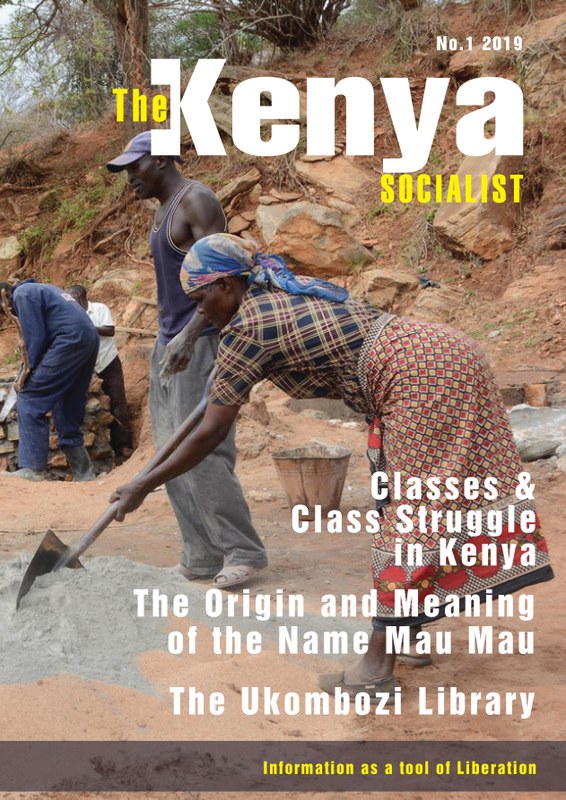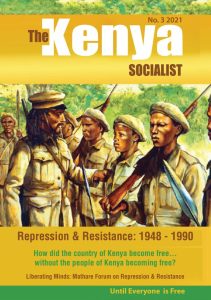Publisher: Vita Books, Kenya
Pages: 38
Year: 2019
Category: Political Activism & Participation, Politics
Dimensions: 297 x 210 mm
The Kenya Socialist exists to: Promote
socialist ideas, experiences and world outlook; Increase awareness of
classes, class contradictions and class struggles in Kenya, both
historical and current; Expose the damage done by capitalism and
imperialism in Kenya and Africa; Offer solidarity to working class,
peasants and other working people and communities in their struggles for
equality and justice; Promote internationalism and work in solidarity
with people in Africa and around the world in their resistance to
imperialism; Make explicit the politics of information and communication
as tools of repression and also of resistance in Kenya.
This
first issue covers several areas that remain neglected in public
discourse in Kenya. The study of class remains one such topic and Kimani
Waweru’s article, Class and Class Struggle in Kenya, fills this gap.
Waweru also contributes a briefing on ideology as a weapon of oppression
or liberation. He will continue his theoretical explorations in the
next issue with an article on gender and women’s oppression and
liberation. History is never far from any liberation struggle. Nicholas
Mwangi looks at Mau Mau and the origin and meaning of the term ‘Mau
Mau’. Njoki Wamai’s contribution is her presentation at the All African
Peoples’ Conference in Accra in 2018. Linking up with the launch of the
Ukombozi Library, the question arises, ‘What is the role of information
in liberation?’ Shiraz Durrani answers some question from Julian
Jaravata on various aspects of information. Finally, Durrani looks at
the challenge by Wakamba wood carvers to the information embargo under
President Moi.
£18.00
About the editors
Shiraz Durrani is a British-Kenyan library science professional noted for his writings on the social and political dimensions of information and librarianship. His widely held Information and liberation writings on the politics of information and librarianship draws on his experiences in librarianship from Mau Mau period Kenya to modern-day UK


